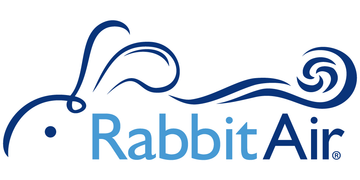
As both concerns and awareness about indoor air quality continue to rise, people are turning to air purifiers as a way to create cleaner living spaces. This awareness is followed both by a rise in healthcare costs, and the rise in popularity of Flexible Spending Accounts (FSAs) and Health Savings Accounts (HSAs) as financial tools for managing medical expenses.
Air purifiers can be eligible for reimbursement through Flexible Spending Accounts (FSA) and Health Savings Accounts (HSA) when accompanied by a Letter of Medical Necessity (LMN) from a medical professional. This letter is necessary to demonstrate that the air purifier is being used to relieve or alleviate allergies or another specific medical condition, such as asthma, or chronic respiratory conditions.
However, there are still many questions regarding the eligibility of air purifiers for reimbursement through these accounts. In this article, we'll explain what FSAs and HSAs are, and look into what makes air purifiers qualify as medical expenses.
Understanding FSAs and HSAs
Flexible Spending Accounts (FSAs) and Health Savings Accounts (HSAs) are tax-advantaged accounts that allow individuals to set aside pre-tax funds for qualified medical expenses. In other words, you can contribute money to this account before taxes are deducted from your paycheck. This lowers your overall tax liability and lets you have more money available for out-of-pocket medical expenses (money that would have been absorbed up by taxes).
Now, both accounts offer similar tax benefits, but they differ by:
- eligibility requirements
- contribution limits
- rollover provisions
FSAs are typically offered by employers as part of their employee benefits package. Eligibility for an FSA is generally not tied to enrollment in a specific type of health insurance plan, making it accessible to a broader range of individuals. However, FSAs have contribution limits of $3,200 per year for individual coverage. Additionally, FSAs may have a "use it or lose it" rule, meaning any unused funds at the end of the plan year may be forfeited, although some plans offer a grace period or allow a limited amount of funds to be carried over into the following year.
On the other hand, HSAs are available to people with high-deductible health plans (HDHPs) and offer the flexibility to carry over funds from year to year. To be eligible for an HSA, you must be enrolled in a qualified HDHP and cannot be covered by any other health insurance plan that is not an HDHP.
HSAs have higher contribution limits compared to FSAs and are subject to annual maximum limits set by the IRS, which are typically higher than those of FSAs. For 2024, the maximum contribution limit for an HSA is $4,150 for individual coverage and $8,300 for family coverage. Additionally, HSAs allow individuals to carry over unused funds from year to year without penalty, making them a valuable long-term savings vehicle for healthcare expenses.
How Air Purifiers Work
Air purifiers work by filtering indoor air to trap pollutants and allergens, like dust, pollen, pet dander, mold spores, odors, gasses, bacteria, viruses, and other airborne particles.
They do so by using various methods such as HEPA filters, activated carbon filters, UV-C light, and ionization. HEPA filters trap particles like dust and pollen, while activated carbon filters absorb odors and gasses. UV-C light neutralizes pathogens, and ionizers remove particles by emitting negatively charged ions. Together, these technologies improve indoor air quality, making the air cleaner to breathe.
When selecting an air purifier, make sure it meets ozone emission standards like Rabbit Air purifiers. Those that do not, may cause irritation to people people with allergies.
Eligibility of Air Purifiers
Determining the eligibility of air purifiers for allergies, or general health issues, as medical expenses under FSAs and HSAs are contingent on various factors. According to IRS guidelines, eligible medical expenses must primarily aim to alleviate or prevent a physical or mental defect or illness, including equipment and supplies expenses.
Air purifiers may qualify as eligible expenses if deemed medically necessary to address specific health conditions, such as allergies or respiratory issues. However, in order to do so you will need documentation of medical necessity, most often through a Letter of Medical Necessity (LMN).
This letter needs to prove that you are using an air purifier to relieve specific medical conditions, and not just use it for general health.
That being said, the best option is to check the details of your FSA and HSA plans and speak to a medical professional.
Applying for Air Purifier Eligibility
If you want to apply for eligibility through an HSA or FSA, simply follow these steps:
- Talk to your healthcare provider: Schedule an appointment with your healthcare provider, such as your primary care physician, allergist, or pulmonologist.
- Discuss your issues: Discuss whether an Air Purifier can assist in helping you with your health issues and whether you are eligible for a Letter of Medical Necessity.
- Contact your HSA or FSA Administrator: If you have received an LMN, reach out to your HSA or FSA Administrators and follow their instructions on how to submit your request for reimbursement.
Conclusion
Air purifiers can significantly improve the indoor air quality of your home by reducing allergens and air pollutants that may trigger health issues. However, not everyone is eligible for reimbursement through FSAs and HSAs. Take charge of your health and discover your eligibility by consulting with your healthcare provider today.




